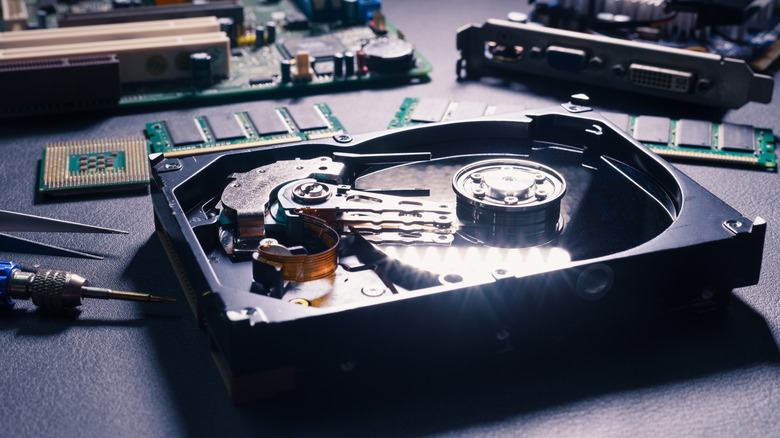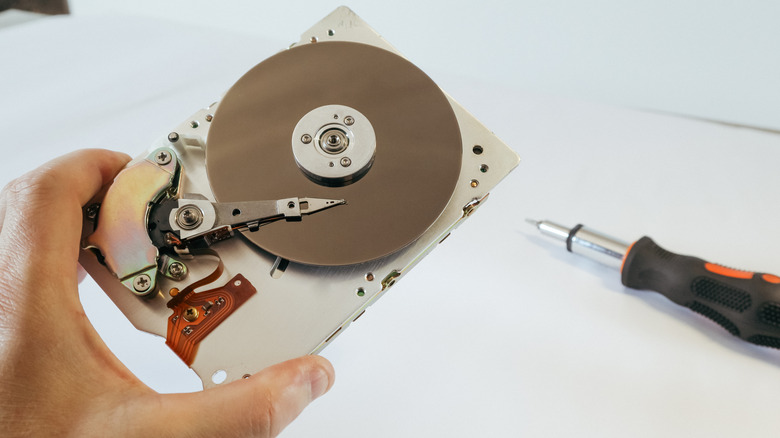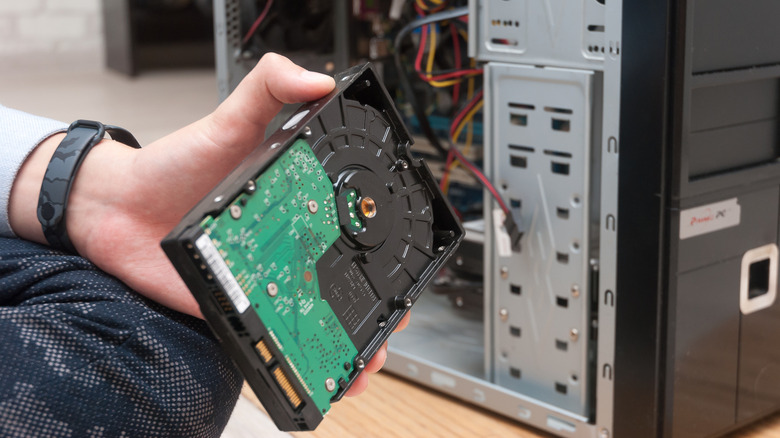Hard Drive Running Slow? This May Be Why (And What To Do About It)
A slow hard drive can make routine tasks, such as storing and transferring files, unbearably frustrating. Running Windows or any other operating system from a slow hard drive can make matters even worse, as the overall experience can seem sluggish. Your computer might take a hot minute before opening apps or might crash frequently, all because of a slow drive.
Hard drives can become slow for a variety of reasons, some of which are fixable and others that are not. Malware or multiple startup apps can heavily clog a hard drive and render it virtually unusable for other tasks. Additionally, the drive can run into fragmentation issues, or the culprit could be a loose SATA connection. Nevertheless, all of these issues can be easily fixed; however, damaged and end-of-life hard drives might need to be replaced altogether. That said, old hard drives can be used in a variety of applications, not restricted to just computers. Here's how you can diagnose the issue causing your hard drive to run slowly and what to do about it.
Check for a failing hard drive
Like all storage devices, hard drives have a certain lifespan, which can be anywhere from four to seven years. A hard drive on its last leg can fail due to wear in its moving parts, like the rotating disk or the actuator arm. Physical damage, especially in portable devices like laptops, can also cause the drive to fail. Fortunately, you don't need to be an expert to know if a drive is failing.
Most modern drives now come with Self-Monitoring Analysis and Reporting Technology (S.M.A.R.T.) that allows hard drives to monitor their status using built-in sensors. Disk analysis software goes through the S.M.A.R.T. data to check for the drive's health. Windows comes with the Event Viewer, which can give you a basic idea of your drive's status. Simply head to the Event Viewer and check for the drive's error logs. While having some errors is natural, errors about "bad sectors" can be a strong indicator that the drive is failing. Third-party solutions like CrystalDiskInfo can provide a more detailed analysis of the drive's health, analyzing parameters like seek error rate, spin-up time, and more. Additionally, you can hear the drive while powered up to check for any unusual noises. Typically, hard drives make a slow humming sound, while sudden clicking or screeching sounds can be signs that something is off.
Unfortunately, replacing a failing drive is the best way forward, as repairs can be tricky and unreliable. While cheap drives can be tempting, it's best to avoid buying a used hard drive due to the risk of potential damage. If you plan to run an operating system from the drive, consider upgrading to an SSD, as its fast read and write speeds can significantly improve the system's responsiveness.
The problem could be something benign
Let's say you have a fairly new hard drive that comes out healthy in the previous tests, but still runs slowly. In such a case, the root cause could be something as simple as startup programs. Many applications automatically start when you boot your computer. A barrage of unnecessary startup programs can shoot up the disk usage and slow down the drive. To disable startup apps, simply open the Task Manager on your Windows PC and head to "Startup apps". Now, disable the ones that are unimportant or that heavily impact the startup time to enjoy a faster hard drive.
Another major, yet easily fixable, reason could be the disk's fragmentation. Computers split up a large file into fragments to store them on different memory blocks on a hard drive. With prolonged usage, the fragmentation can lead to significantly slower read and write speeds. You can defrag your hard drive in Windows and make the drive faster, depending on the extent of fragmentation. If the problem persists, it could also be due to malware on the hard drive. You can run a basic threat scan using Windows Defender to check for malware and remove any infected files. Alternatively, you could switch the drive's SATA connector to a different port on the motherboard, as loose connections can sometimes cause the drive to slow down.
If nothing seems to work out, it's possible that you've purchased a slower hard disk. A disk rated at a lower speed of 5,400 RPM is naturally slower than its competitors with 7,200 or 10,000 RPM. If you have a 5,400 RPM drive, try upgrading to a 7,200 RPM one as it can be up to 25% faster and offers the most bang for the buck.


